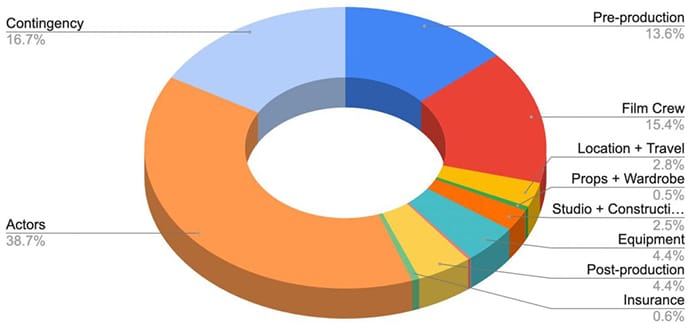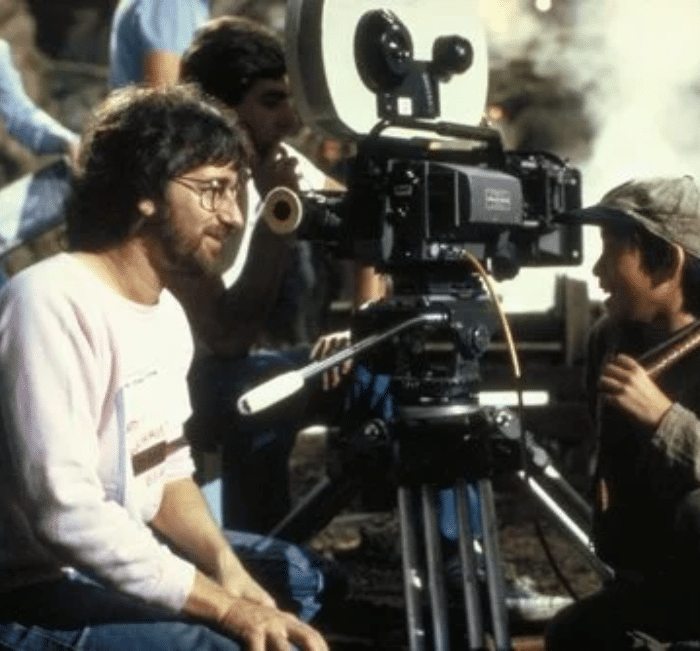Welcome to Deep Dives, where we explore interesting companies in the alt investment space.
I hope you our last issue on Onfolio — a Nasdaq-listed company that acquires profitable, cashflowing online businesses.
A few weeks ago, we explored the film supply crunch. We wanted to understand how the writer’s strike is affecting the industry, and what opportunities it would create.
What we found is that right now is independent films’ time to shine. It’s the best time in decades to be acting in, producing, and financing indie films.
So today, we put the magnifying glass onto the financing side. How much it costs to produce an indie film? Where does the money go? And how are the profits split?
Best of all, we have a unique movie investment opportunity. You’ll get Executive Producer credit, your own iMDB page, and will be first in line to collect funds when the film makes money.
Let’s g
Table of Contents
A quick recap of the strike
The movie industry is at a standstill.
- In May, the Writers Guild of America went on strike over a dispute with studios
- The SAG-AFTRA union (i.e. the actors) joined the strike in July
- The main disputes are over AI and royalty payments
What does this mean?
Until the strike ends, big budget films are not being made
The industry is ruled by content. The more content studios have, the easier it is to target niche interests and strike gold. (For example, Drive to Survive)
But right now they have no actors or writers to fill this mammoth-sized hole in their production line.
So who’s the big winner here? Independent films.
Indie film studios aren’t affected by the writer and actor’s strikes! They have a special interim agreement to hire union actors and writers without crossing the picket line.
They can even hire big names that are off the table for big Hollywood studios — including Mark Ruffalo, who has been screaming this fact for weeks:
By making independent films with these interim agreements, we are showing the world and the AMPTP that we can have a healthy thriving industry that honors workers. If the humble indies can do it, so can the AMPTP! https://t.co/DcSlhGFYKF
— Mark Ruffalo (@MarkRuffalo) August 11, 2023
Film investment opportunity
If you’ve ever wanted to be the Executive Producer of a film, now’s your chance.
Two of our long-time Alts community members, Lisa Scott and Alan Field are making an indie film and looking for investors
The film is called “A Jewish Christmas” (Yà Lì Shāndà Jewish Xmas). It’s a bit of a comedy, a bit of a drama. (A dramedy, if you will.)
Plot
The story is about two families – one Chinese, and one Jewish.
The husband of the Jewish family gets “high as a kite on cannabis fortune cookies,” so they go to eat at a Chinese restaurant because, well, that’s basically the only thing ever open on Christmas day.
Comedically, you could compare it to the Seinfeld episode, “The Chinese Restaurant,” but on a pot trip:
Investment details
You can help bring this film to life.
As an investor you’ll get an Executive Producer credit, and can receive an iMDB page (which is pretty cool in its own right!
But most importantly, those providing equity will be first-up on the film’s recoupment waterfall.
See, when a film starts earning money, there’s a pecking order of investors, producers and actors all waiting to get their slice of the pie (which usually turns into crumbs the further down you go).
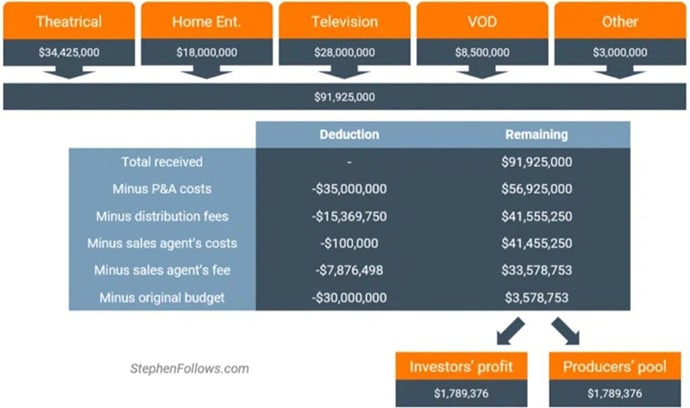
But not with this film.
From the very first dollar A Jewish Christmas earns, 95% is dedicated to investors.
This means as soon as the movie starts generating revenue, it goes back to the investors at a 95/5 split. Once investors recoup 120% of their principal, the revenue share reverts to 50/50 ownership, where it stays forever.
This is all taken care of through A Jewish Christmas The Movie LLC — a privately held company formed specifically for this production. This is normal for indie films. For example, one of the most successful indie TV shows of all-time, The Chosen, has its own LLC.

Indie film production economics
Budget
The film will be produced with a budget of $1.6m.
Here’s a breakdown of where the money goes:
Note: Production budgets like this don’t account for marketing or distribution. Regardless of whether they’re big or small budget, films typically need to 4x their production budget to spin a profit.
- With a budget of just $1.6m, A Jewish Christmas needs to gross $6.4m to be considered successful
- The average ticket price is $12
- So, roughly 533k people need to see A Jewish Christmas at the cinemas to hit profit
- Revenue sharing between the filmmakers and movie theaters is usually a 60/40 split. So the film would need to sell about 889k tickets worldwide.
But this is just revenue on the retail side. It doesn’t factor in distribution through a studio like Netflix, Amazon, Disney, etc.
Selling to a studio is a huge goal here. Since Netflix can’t produce their own content, they need to buy content that’s ready to go from indie filmmakers like Lisa and Alan.
Script
It all starts with the script.
Indie screenwriters need to straddle the line between writing an interesting plot, and catering to financial restrictions. You cannot write a script without considering costs from the very beginning.
Just like with startups, these restraints force writers to get creative.
In Lisa and Alan’s case, they are already experienced scriptwriters. And in fact, the script is already done. You can read a section of it here.
My favorite excerpt involves the character Andy demanding ice water in a restaurant that doesn’t want to serve it. After kvetching out loud, he finally gets his drink, but with a fishy twist.
It feels like something out of the Curb Your Enthusiasm playbook: I can picture Larry David complaining about not getting enough ice in his water and making a huge stink out of it.
Actors
Actors are usually the biggest draw in a movie. Despite what you may think, indie films are no exception.
You want to spend up here. 50% of an indie film’s production budget should go to the actors.
Getting the right actors can bring attention and sales to a film like nothing else. If you’re working with a small budget, names like Clooney or Witherspoon are usually out of the picture. But just 1-2 million is enough to pick up relatively well-known names from TV or other indie films.
For example:
- Sophia Coppola spent just 25% of Lost in Translation’s $4m budget to secure Bill Murray.
- With a budget of $3m, producers of The Whale managed to snag Brendan Fraser and Sadie Sink (from Stranger Things)
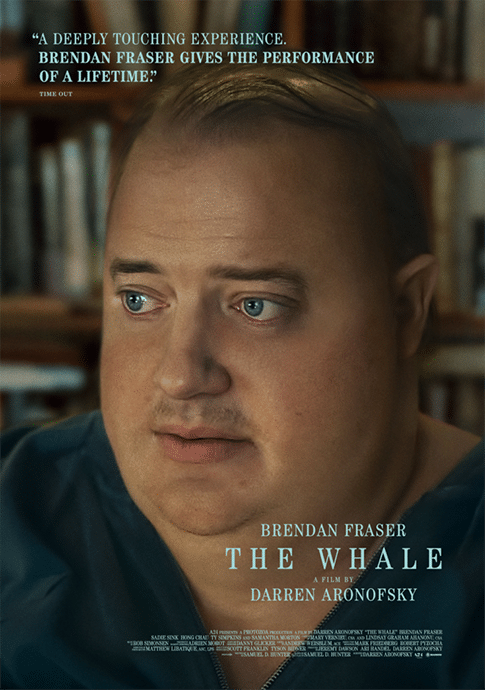
Sometimes you can make a hit with “no-name” actors:
- District 9 comes to mind. The movie grossed $210 million against a production budget of $30 million, yet most people would struggle to name any actors from it.
- Good Will Hunting starred Matt Damon and Ben Affleck — neither of which were A-listers before the film.
This works in reverse too. There’s loads of big-name actors who’ve performed in total flops:
- Keanu Reeves was the lead in 47 Ronin — one of the biggest financial flops of all time
- Johnny Depp starred in the second-biggest failure, The Lone Ranger
But these are deviations, not the norm. In most cases, getting the right actor can propel an indie film that would otherwise get unnoticed into the mainstream. And with about 40% of the production’s total budget dedicated to talent, A Jewish Christmas has a shot to reel in a big fish.
Lisa wants a well-known Jewish actress to take the lead. Their first target is Sarah Silverman, who would be a huge win. The team is also looking into Jewish rapper Lil Dicky.
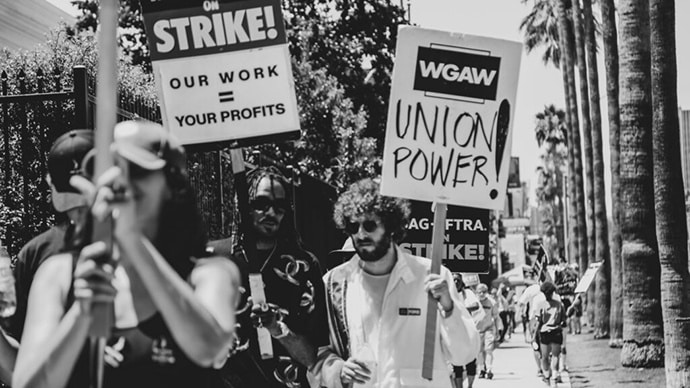
Actors don’t get contacted directly, everything goes through a well-connected agent.
To have a chance of securing top-tier talent like Silverman, you need a good casting director. And that’s exactly what the A Jewish Christmas team has secured.

Production
After actors, production is where the dollars flow.
There are a bunch of jigsaw pieces you need to put into place here:
- Crew
- Equipment
- Cameras
- Lighting
- Sound
- Music
- Location
- Catering
- Logistics & transportation
Many indie producers are forced to forego some of these elements to fit under budget. The location might have to be wherever is freely accessible on the day of the shoot. The film might be shot at a certain time of day to avoid artificial lighting. Caterers might be someone’s parents, etc. You gotta get creative.
But these financial restraints can lead to some of the most creative works in history. (There’s actually studies on this.) Think chocolate sauce being used as blood in Night of The Living Dead, or the found footage explosion ushered in by The Blair Witch Project.

So how are Lisa and Alan cutting back on production costs without sacrificing the quality of the film? By sticking to one location and reducing filming time.
Sticking to one location
A while back, Lisa Scott stumbled across a Washington DC restaurant that she knew would be perfect for her idea. the entire screenplay was written with this location in mind.
So the whole thing takes place in and around the one set — few travel expenses are required.
Reducing filming time
A Jewish Christmas is going to be a one-take film. That’s right — the entire film will take place within one single camera shot.
It’ll be like a one giant scene from Goodfellas. (Or for you fans of It’s Always Sunny in Philadelphia, like the memorable episode, Charlie Work)
This style of filmmaking has recently resurged, and is gaining some serious traction.
A Jewish Christmas is heavily inspired by the recent hit Boiling Point. This film gained so much popularity that they’ve since turned it into a TV show.
When you employ this method, however, you need to be ready to go on filming day. Time is money, and once everyone’s on set, the clock starts ticking, and the costs start mounting.
So the team will spend a full week choreographing and rehearsing, and then shoot 4 takes in 24 hours.
This means they don’t have to waste time & money on cuts, re-takes, and other show-stoppers.
Timeline
Once the project is greenlit, here’s the plan:
Pre-production (8 weeks)
- Includes casting, scouting, crew and equipment hire, and rehearsals
Principal photography (2-3 days)
- Includes the film’s four takes, location set-up and all on-site production
Post-production (4 weeks)
- Includes editing, color correction, score and music work, mastering and final delivery
Distribution and release
The goal is to distribute A Jewish Christmas so it hits cinemas during the 2024 holiday season. They’ll target independent movie theaters to screen the film, and already have a list of 50+ arthouse cinemas that are interested.
By January 2025 they’ll start looking for a contract with cable channels and the big streaming platforms. A Jewish Christmas will also be targeted at the big Chinese streaming platforms like iQIYI and Youku.
It can take months after distribution before royalties start coming in. All up, A Jewish Christmas investors will have to wait around eight months before the film starts generating revenue.
And actually seeing a positive return on investment may take years, if it happens at all. Unfortunately, 97% of indie movies historically fail to turn a profit. But when they do make a splash, the actual ROI is usually much much bigger than big-budget films.
And with Hollywood strikes squeezing out the major players, indies’ odds of success is drastically improving.
Remember, the big name actors are all on strike and looking for work. Their value is “down,” and this is the best time in decades to secure one.
Investor perks
Investors already have a big financial incentive — they sit atop of the revenue waterfall and get 95% of returns, until 120% of their principal is recouped.
But there are some other cool perks as well:
- Tax incentives. Did you know TV and film investors can get significant tax breaks? For a full breakdown, this article explains it well. basically, you may be able to offset taxes on income earned from your investment.
- Exclusive access. As a part-owner and Executive Producer, you’ll be allowed on set, get invitations to red carpet festivals, theatrical screenings and all sorts of other events.
- iMDB. There’s a good chance you’ll get your own iMDB page. It won’t happen automatically, but you can easily make it happen.
The team
The two main players here are Lisa Scott and Alan J Field. Each will take on the role of writer, director and producer. And neither are novices to the industry.
Lisa Scott has written several award-winning scripts and even started her own production company, 51st State Productions. Under this brand, she penned, directed and produced the pilot for the stoner comedy Bud Appetit.

By her side is scriptwriting and filmmaking veteran Alan J. Field.
Alan started out as an author, before he adapted his novel, Chemical Attraction, into a screenplay. This story won the Grand Prize in New York’s 2018 Screenplay Festival.

Lisa and Alan have also partnered with:
- E Dawn Samuel (Actor, Assoc. Producer)
- Daryl Eisenberg (Casting Director)
- Kiff McManus (Sound Recordist)
- Shelia Smith (Cinematographer)
- Nobel & Nate Jolley (Lion Pack Music Group)
Closing thoughts
A Jewish Christmas might just be the most unique investment opportunity we’ve come across.
Getting to be part of a high-quality film isn’t something that comes around every day. There aren’t many other investments that can give you a taste of the glitz and glamour of Hollywood.
This team is experienced, talented and are working with a great script.
Let’s be clear though – investing in indie films is a risky venture. There are no guarantees in this world, and only a small handful of these productions ever turn a profit.
But those that do can really take-off. And the environment seems just right for the indie film industry to really hit its stride.
If you’re interested in learning more and connecting with Lisa and Alan, just reply to this email, or click below.
I’ll make a personal introduction
Further reading
- With a push from Netflix, studios have offered screenwriters a new deal to end the strike
- No deal is in sight for actors, who are eager to return to the table
- 8 excellent indie films big-name actors have starred in
Disclosures
- This was a paid deep dive by A Jewish Christmas The Movie LLC
- Our ALTS 1 Fund has no film holdings, nor have we invested in this film
- I have not personally invested in this film
- This issue contains no affiliate links.
This issue is a sponsored deep dive, meaning Alts has been paid to write an independent analysis of A Jewish Christmas The Movie LLC. A Jewish Christmas The Movie LLC has agreed to offer an unconstrained look at its business & operations. A Jewish Christmas The Movie LLC is also a sponsor of Alts, but our research is neutral and unbiased. This should not be considered financial, legal, tax, or investment advice, but rather an independent analysis to help readers make their own investment decisions. All opinions expressed here are ours, and ours alone. We hope you find it informative and fair.




